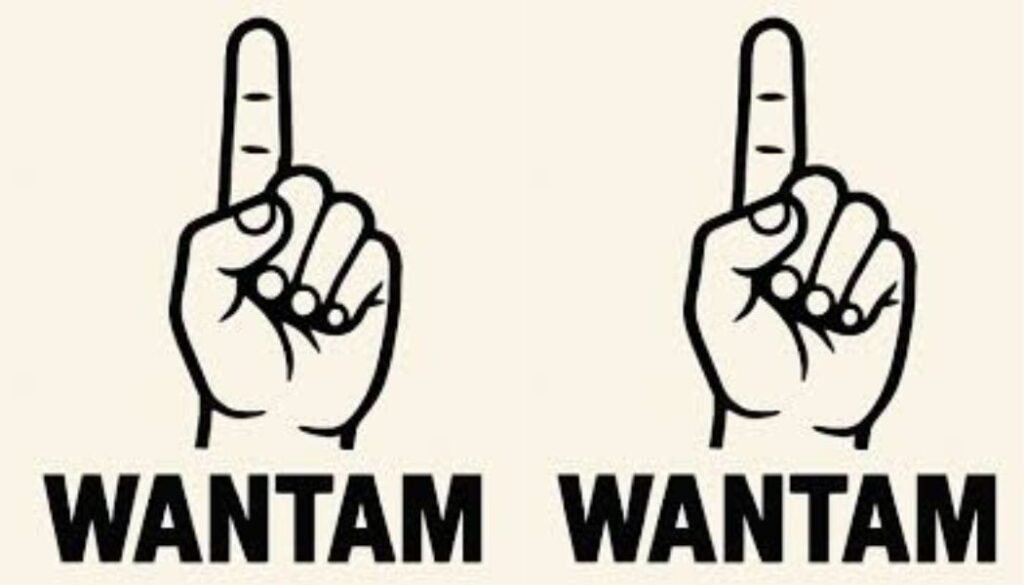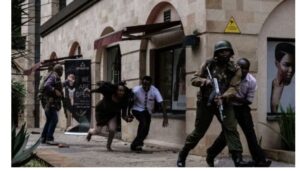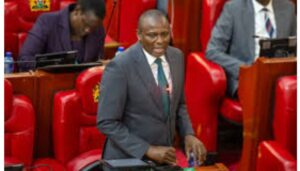‘Wantam’ ‘Mambo ni Matatu’ does not amount to hate speech; NCIC

NCIC Commissioner Danvas Makori singled out "Wantam" and "Mambo Ni Matatu", which have lately become popular with Kenyans, saying they do not amount to hate speech.
NCIC Commissioner Danvas Makori singled out “Wantam” and “Mambo Ni Matatu”, which have lately become popular with Kenyans, saying they do not amount to hate speech.
“Wantam” is a corruption of ‘One Term’ that has mainly been used by former Deputy President Rigathi Gachagua and his team, as they push to have to have President William Ruto to be a one-term president.
On the other hand, ‘Mambo ni Matatu’ is a Swahili phrase that has now become popular among Kenyans. It loosely translates to “you have three options.” President Ruto used the phrase to warn those who would fight reforms in the sugar industry. Ruto called on two investors, whom he said were fighting over control of Mumias sugar company, to stop or move out, go to jail or embark on the journey to heaven.
Makori said the two slogans, and others that are being used by politicians, do not meet the threshold of hate speech and are merely considered as forms of political expression.
While appearing on NTV on Wednesday, June 4, Makori explained that such terms also do not fall under the Commission’s purview, whose mandate is to promote national unity and eliminate ethnic discrimination.
“No, they (“Mambo ni matatu”, “Wantam”) are not forms of hate speech. They do not meet the threshold. They said “Wantam”, now there is “Tutam”, so it’s free for all, in terms of that form of political expression,” Makori said.
So, what is the threshold? As per NCIC, hate speech is defined as “when a person uses threatening, abusive or inciting words or behaviour, publishes or displays material either in written or audio/audio visual form that is threatening, abusive or insulting to invoke or stir up ethnic hatred/or has the likelihood of stirring up ethnic hatred.”
Even so, Makori still maintained there was the need for NCIC to prove that one intended to stir up ethnic hatred if the matter goes to court.
Further, he noted that the law on hate speech was only limited to ethnic hatred but revealed there was an amendment in Parliament geared towards adding provisions for gender and “coded” words.
Samia Suluhu shuts down megachurch for condemning abductions
Mercy Mwangangi officially assumes office as SHA CEO
COTU raises concern over possible misuse of housing levy
Several of George Natembeya’s team abducted at Milimani Law Court
Activist Rose Njeri charged with cybercrime, accused of ‘interference with parliament system’
Makori stated that there was a misconception about politicians using such slogans as means of conveying hate speech. The Commissioner explained that on most occasions, the slogans, chants and in some cases utterances were just offensive but not up to the hate speech threshold.
He added that despite numerous complaints linked to hate speech, only five per cent of them warranted NCIC’s attention. He further added that cases of incitement to violence do not meet the hate speech threshold, further compounding the Commission’s ability to handle the cases.
The Commissioner stated that the high threshold, coupled with rigid Constitutional guidelines centred around the doctrine of Rules of evidence, leaves the Commission with an uphill task in following up on the cases.
“With all this in mind, you find that those who do not have the proper knowledge of how we (NCIC) work are always on our case over not adhering to our mandate,” Makori expressed.
The latest comes at a time when the country is experiencing a highly charged political landscape with the upcoming elections looming.
Recently, former Deputy President Rigathi Gachagua was summoned by NCIC over remarks he over an alleged plot to rig the 2027 polls.
In a past interview, Gachagua referred to the 2007/2008 post-election unrest, saying it would appear as a ‘Christmas party’, should the government rig the next elections, a statement that has since unsettled different stakeholders.
In response, NCIC chairman Samuel Kobia said the commission was working with relevant authorities to ensure Gachagua was held accountable over his remarks, warning him over making “divisive utterances.”
Sifuna tells Ruto to retaliate against Tanzania “withdraw that fake apology”
Auditor General report reveals how NSSF lost over Ksh.16 billion
Charlene Ruto speaks after man is charged with publication of a book about her
Former CJ David Maraga joins senior lawyers to represent Activist Rose Njeri
20% of affordable housing units to be reserved for KDF, police; Ruto
TSC appoints Eveleen Mitei as interim CEO
Matiang’i concludes World Bank duty, set to return to Kenya for 2027 bid
Follow us




